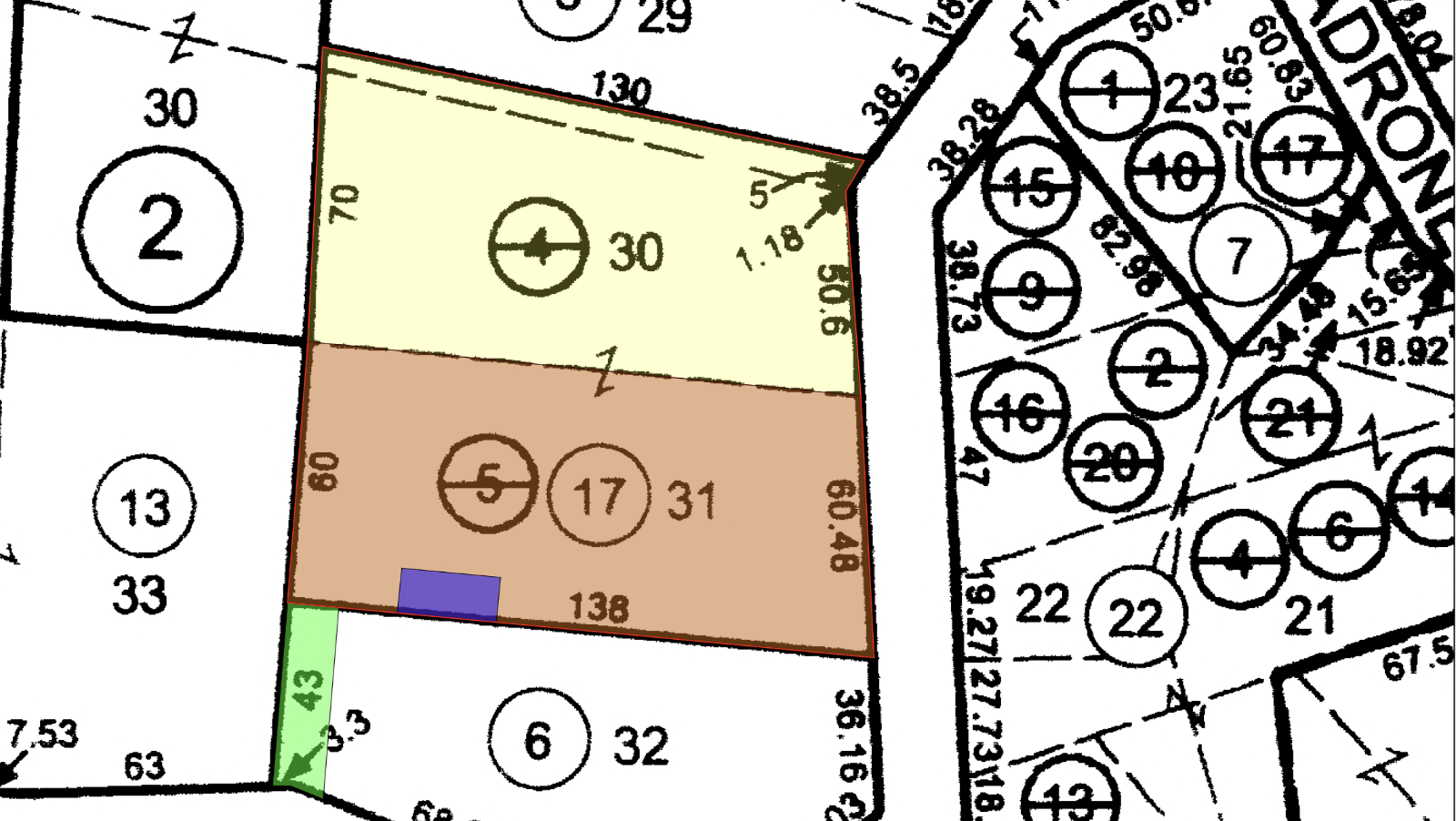I just closed escrow as the buyer’s agent on a REO property – that is, the house had been foreclosed on, and the bank owned it. When a bank is selling a property (or, typically, it’s an asset management company that sells the property for the investor, marketed on the MLS using the services of a Realtor), there are few disclosures made about the property – because, of course, the owner of the property is an investment firm in Abu Dhabi or the pension fund for a plastic toy factory in Shenzhen, China – and what, really, could such an owner know about the property?

Exactly. So when you’re buying a property from the bank, you really have to be extra diligent in your investigations of the property. In this particular case, we stumbled onto some significant material facts that had not been disclosed to us by the seller – which is not surprising, because I’m sure the seller didn’t know. The buyer and I were at the property measuring the rooms or something, and one of the neighbors came over to have a chat. “Do you know about the lawsuit?” she asked.
“Lawsuit? What lawsuit?” I replied. That is what you really like when you are starting to wrap up your investigation of a property – to hear that there had been a lawsuit. “Oh, don’t worry,” she said, “it’s all been settled now.” She went on to say that there had been, in effect, a property line adjustment, and the subject property (the one I was helping my client to buy) had relinquished some “useless” land behind the garage in exchange for some use of some of the neighboring ‘s land, which was a non-exclusive easement benefiting the subject property but had been used for years and years exclusively by the former owners.
Fair enough, and any such lot line adjustment would, naturally, appear on the title report. The problem was, we had not been given a title report yet, although I had requested a copy about a week prior. As often happens with the purchase of an REO property, the title & escrow company is some out-of-town outfit, often from L.A. I immediately contacted them, and said, hey, we really really need our title report, now. It took them several days before they actually coughed up a title report.
I forgot to mention – this neighboring parcel – it’s a vacant lot, and it’s for sale. At some point during all this, I had talked to the listing agent for this parcel, and he said he’d heard about the lawsuit, and said he heard that there were some un-recorded grant deeds lying around, but didn’t really know much about it and would check with the owner and get back to me.
I didn’t sit idly by, though. I went on to the county recorder’s office and looked to see if I could find any grant deeds and such that would be required in the event of a lot line adjustment. I couldn’t find any – but then, I’m not a professional title researcher. After a few days, the title report showed up, and…
No mention of any lot line adjustment. The property lines matched precisely the tax assessor’s map which I had already downloaded from First American Title’s beloved Fastweb system. Hmmm. So where, then, was this supposed land swap? What had the neighbor been talking about?
In a burst of inspired genius, I found my way on to the superior court’s web site – it turns out, you can search the case history index on-line. Ahh, voila. I did in fact find that there had been a court case between the former owner of the subject property and the current owner of the vacant lot. Unfortunately, you can’t actually view the case records on-line, you need to schlep yourself over to the courthouse and ask to see the records in person.
So I did. A pretty thick file, actually – two volumes, one of which they had to dredge up from the basement. The lawsuit was brought by the owners of the vacant lot, suing the owners of the subject property (again, the one I was helping my client to buy) for encroaching upon their land, using the non-exclusive easement in an exclusive manner. The judge never made a ruling, but rather, it was settled in a conference.
The result of the settlement was that this lot-line adjustment was to be drawn up, deeds signed, a new fence to be built, etc. The new fence had been built, actually. But where were those pesky deeds?
I contacted the vacant parcel’s listing agent again and told him what I had found down at the courthouse, and he said, “Well, I talked to the seller, and she invites you to call her, she’ll explain everything.” He gave me her number, so I gave her a ring. She’s a very nice lady, and even though this lawsuit and lot-line imbroglio had been hugely taxing for her, she was as pleasant as can be and very helpful.
She explained that yes, per the settlement, she had hired a land-user planner, had surveys done, grant deeds drawn up, got all the signatures in place, had done everything you’d need to do to get a lot-line adjustment done and then, supposedly…the city lost the application to do the lot line adjustment. It just vanished, and the process died. She kindly gave me copies of all the deeds and surveys and everything, and wished me well.
Upon keen examination of the provided documents, my client noted a salient detail: the land behind the garage was being given to the neighbor’s parcel, but the easement that was being encroached on was not being grated to the subject property – it was changing from a non-exclusive easement to an exclusive easement. That’s not the same thing as being granted – in effect, then, the subject’s lot size would be decreasing by about 10%.
To make a long story short, after a week or so of hemming and hawing and talking it over with various parties concerned, we made a devil’s pact with the bank – we would take the property as-is, and proceed to close immediately, if the seller (“the bank”) would drop the price by about 10%. The bank took this offer, and my client proceeded to swiftly close on the purchase of the property – the catch is, this lot line adjustment is now in his hands.
There are all kinds of interesting angels to explore here, like those grant deeds – so far as I know (and of course, I’m not a lawyer!) a signed and notarized grant deed is legal, even if it is never recorded. That’s one big reason why you have title insurance, in case someone shows up down the road with a legal, un-recorded grant deed and says “Hey, uh, actually, your house? That’s mine.”
Another legal angle is the addendum I had the buyer sign where the agrees not to sue anybody (like me, or the seller, or the seller’s agent) for any reason related to boundaries and easements and adjusting or failing to adjust the lot lines. How would that one hold up in court? Hopefully I’ll never need to find out.
My client ended up buying this property at a very good price, thanks to a hard-fought, bitter lawsuit. There are many paths to real estate riches, and this particular bath was bumpy and winding, but my client is going to get there, just the same.






